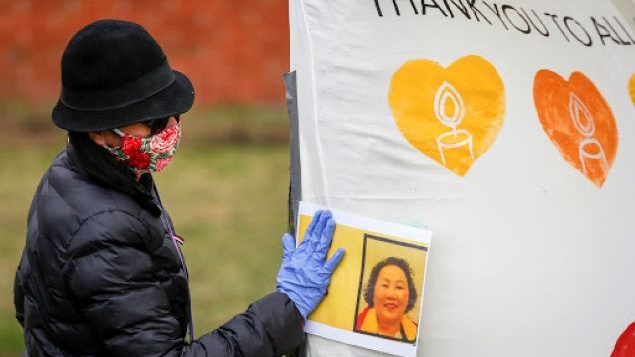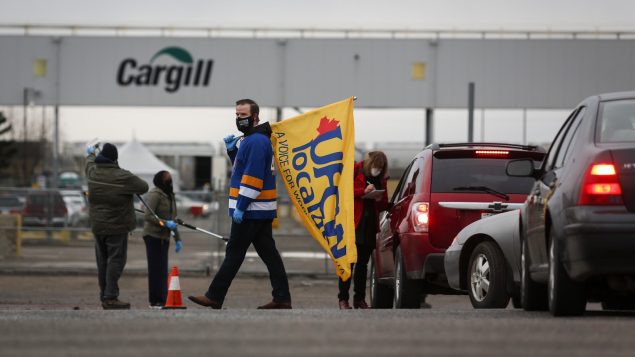No major breakthroughs are reported, but tensions at the Cargill meat-packing plant in High River, Alberta appear to be easing just a bit.
The plant, home to the largest single-site outbreak of COVID-19 in the country, is the focus of something of a showdown between labour and management that has caught the attention of people across Canada.
Two people have died and over 1,500 other people linked to the plant–including some 950 employees–have been infected by the virus.

The Cargill meat-packing plant is located on the Canadian Prairies in the shadow of the Rocky Mountains. While the setting may be beautiful, the plant has been the site of some ugly events of late. (REUTERS/Todd Korol)
Almost three weeks ago, Cargill announced it was temporarily shutting down because of the outbeak.
Their union, the United Food and Commercial Workers Local 401, immediately sought a stop-work order from Alberta Occupational Health and Safety (OHS) and filed an unfair labour practice complaint against both the Cargill plant and the Government of Alberta.
Neither went anywhere and on Monday the workers returned–despite a union survey that found 85 per cent of them did not want to.

Plant security check workers returning to the Cargill plant on Monday. (THE CANADIAN PRESS/Jeff McIntosh)
But they returned with renewed support from many members of the Alberta labour movement--both leaders and rank-and-file–who were there to greet them with encouraging words and masks they would wear inside the facility.
Union representatives have remained stationed at the plant all week along with staff from Alberta Health Services and OHS, and health and safety meetings are taking place on a daily basis.
Finally, after talking softly and not wielding a particularly big stick against a powerful adversary, the union scored something it dearly wanted–a hearing before the Alberta Labour Relations board.
Originally set for yesterday, it will now be held next week.
Despite the new-found civility, the union says it still cannot endorse the reopening of the plant due to lingering concerns regarding social distancing inside–concerns it will raise at the Labour Relations Board hearing.
“We want to discuss what happened and why it happened… how so many people could get sick like this,” union official Michael Hughes told RCI.
“And how do we prevent it from happening again if we don’t know why and how it happened the first time?
“And why didn’t they listen to their workers–the workers on the floor?”

A mourner touches a photo at a memorial of Hiep Bui Nguyen, a Cargill worker who died from COVID-19, in April, The memorial was held Monday, the same day workers returned to work at the plant. (THE CANADIAN PRESS/Jeff McIntosh)
Still, Hughes is looking for a bright side.
“We’re a bit encouraged,” he said.
“Both sides are talking and both sides are listening.”
A large percentage of the workers at Alberta meat plants are Filipino, some of whom are temporary foreign workers (TFWs) and others who are permanent residents--strangers in a strange land.
On Thursday, they got an emotional boost when members of Southern Alberta’s Filipino community showed up in High River with 200 grocery bags for the families of workers diagnosed with COVID-19.
The bags were filled with food and messages of encouragement.
With files from CBC NEWS, The Canadian Press







For reasons beyond our control, and for an undetermined period of time, our comment section is now closed. However, our social networks remain open to your contributions.